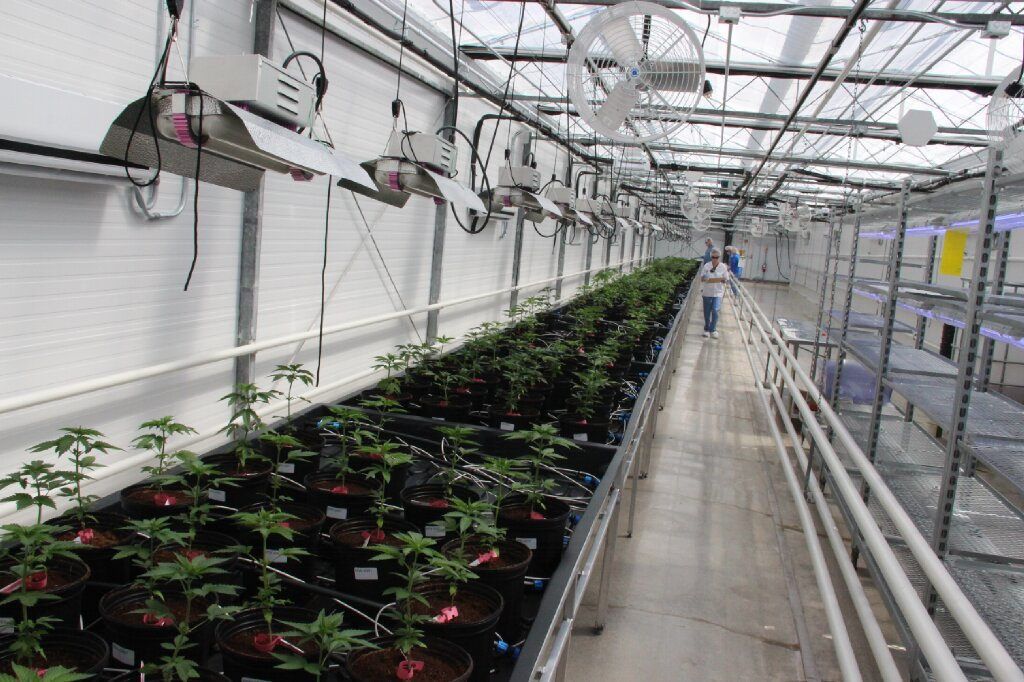Supreme Pharmaceuticals, a Canadian company producing medical cannabis in a hybrid greenhouse, has raised $3.6 million in a private placement. The company is listed on the Canadian Securities Exchange and sold shares for C$0.4 each.
The proceeds of the funding will go towards expanding the company’s 342,000 sq ft facility in Kincardine, Ontario, by a further 80,000 sq ft. This will take annual production capacity to over 10,000 kg of medical cananbis a year.
Supreme’s facility is a mix between a greenhouse and an indoor facility; “conceptually it’s closer to an indoor facility with a huge skylight”, says John Fowler, CEO of the company. “It’s modular and equipped with HVAC units, light deprivation shading, drip irrigation and artificial lighting.”
“There are strong consumer preferences for hydroponically grown cannabis today and it dominates the market,” he said. “Growing cannabis outdoors is clearly cheaper, and while we’re no longer hiding from the police or restricted in where we can grow it, the cheapest is not always the best. Cannabis varies in quality like wine grapes and grown outdoors it is lower quality than what consumers want today versus 30 years ago.”
By growing in a hybrid facility, Supreme is saving on lighting costs but benefiting from the climate control indoor growing offers.
“We’ve met a few US companies looking at the hybrid model too, but we are the first to go as far as we’ve gone with it,” said Fowler. “Others seem to be more like a greenhouse with some climate control. We have retrofitted existing buildings.”
While Supreme believes it probably does have some intellectual property around how it constructs its facility, the team has focused on getting to market quickly instead of securing any of it. “Securing IP is not something that concerns me too much; there isn’t one breakthrough linchpin making this work. We are taking a more holistic view and commitment to do something in the space to change the way cannabis is cultivated,” he said.
The laws in Canada are straightforward: medical cannabis is federally legal, which allows for the production and sale of dried cannabis buds and one class of edible oils. There are restrictions around extract products such as hash, and it is a medical only program where every consumer must have a prescription from a physician. This is a much more challenging standard to meet than in California, Fowler joked. “You can’t just go on Skype to your physician and get one,” he said. “The doctor has to prescribe other drugs first.”
Supreme sells to distributors and not directly to consumers like other producers in Canada, which are more vertically integrated such as Tilray, a portfolio company of cannabis-focused private equity company Privateer Holdings.
If the company hits its goals, it expects profits of over $150 million a year by 2018, purely from the Canadian market. It might consider exporting or expanding to other countries globally at that point, Fowler added.
This recent fundraising round takes Supreme’s total capital raising efforts to $15 million over two years, mostly secured from high net worth individuals and family offices.
The company listed on CSE through a reverse acquisition by Supreme Resources, a mining exploration company, that converted to the medical cannabis business in 2014 and changed its name to Supreme Pharmaceuticals.
Fowler thinks becoming a public company was the best route to capital and to the market for the business.
“It has worked for us,” he said. “There are restrictions on advertising but being a public entity has given us a great vehicle to get in front of the public, build the brand and awareness. And we’ve been paying out dividends for a couple of months now.”
Reverse listings have been the route for other startups in the cannabis space that have largely lacked access to private capital, he added.
Supreme expects to raise more funding later this year.
Have news or tips? Email [email protected]





